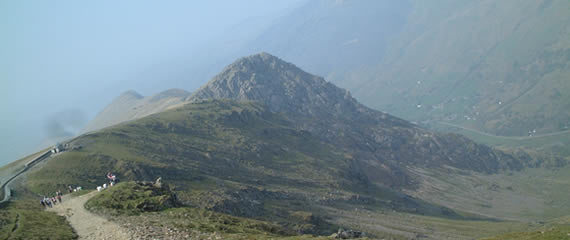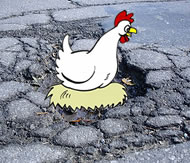Calembour /kalɑ̃buʀ/, nm – Jeu de mots fondé sur la différence de sens entre des mots qui se prononcent de la même façon (ex. : personnalité et personne alitée) (de Larousse).
This is a French word I learnt last night that means pun or, “a play on words based on the difference in meaning between words that are pronounced the same”. The example above doesn’t work as a pun in English – personnalité = personality and personne alitée = a bedridden person.
Calembour first appears in a letter by Denis Diderot from 1768. According to Webster’s Online Dictionary, it comes from a character known as “der Pfaff vom Kahlenberg” (the Jester of Kahlenberg), a.k.a. Wigand von Theben, in a German story called Tyll Eulenspiegel (Owl’s Looking-glass). The Jester of Kahlenberg, or Calembourg in French, spent time in Paris during the reign of Louis XV and was known for his puns and blunders.
The English word pun (/pʌn/, /pən/) is of uncertain origin. The OED suggests that it possibly comes from punctilio (a minute detail of action or conduct). Other possible origins of pun, discussed in The Pun Also Rises by John Pollack, include:
– pundit, from the Sanskrit पण्डित (paṇḍita – “a learned Hindu versed in Sanskrit”), although the Sanskrit word for pun is श्लेष (śleṣa)
– pun, Old English for “to pound”
– पुण्ड् (puṇḍ), a Sanskrit word meaning “to heap up together”
– punctilio, Latin for “fine point”
– pun, an Anglo-Indian word meaning “a stake played for a price; a sum” – named after a type of Indian coin.
There’s also discussing of the etymology of pun on the OUPblog.
The Pun Also Rises is an interesting and pun-filled history of puns and punning which suggests that they have been around perhaps since language first emerged, and that the dismissive attitude and groans which they often evoke are a relatively recent development. The author argues that by forming links between unlikely things, puns can stimulate creative thinking and mental agility, and that they can also help children to develop their linguistic skills – knock knock jokes (invented by William Shakespeare), are perennial favourites for this.




